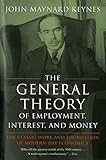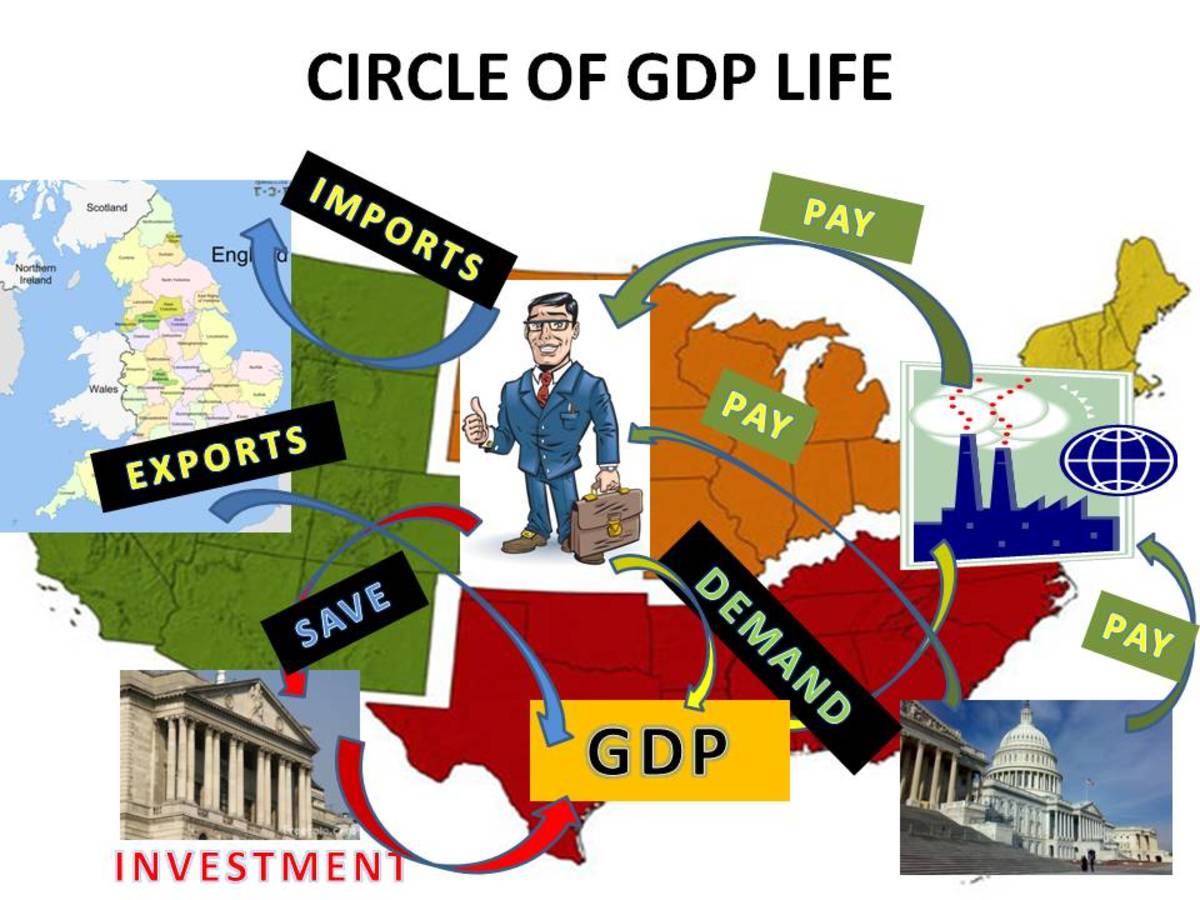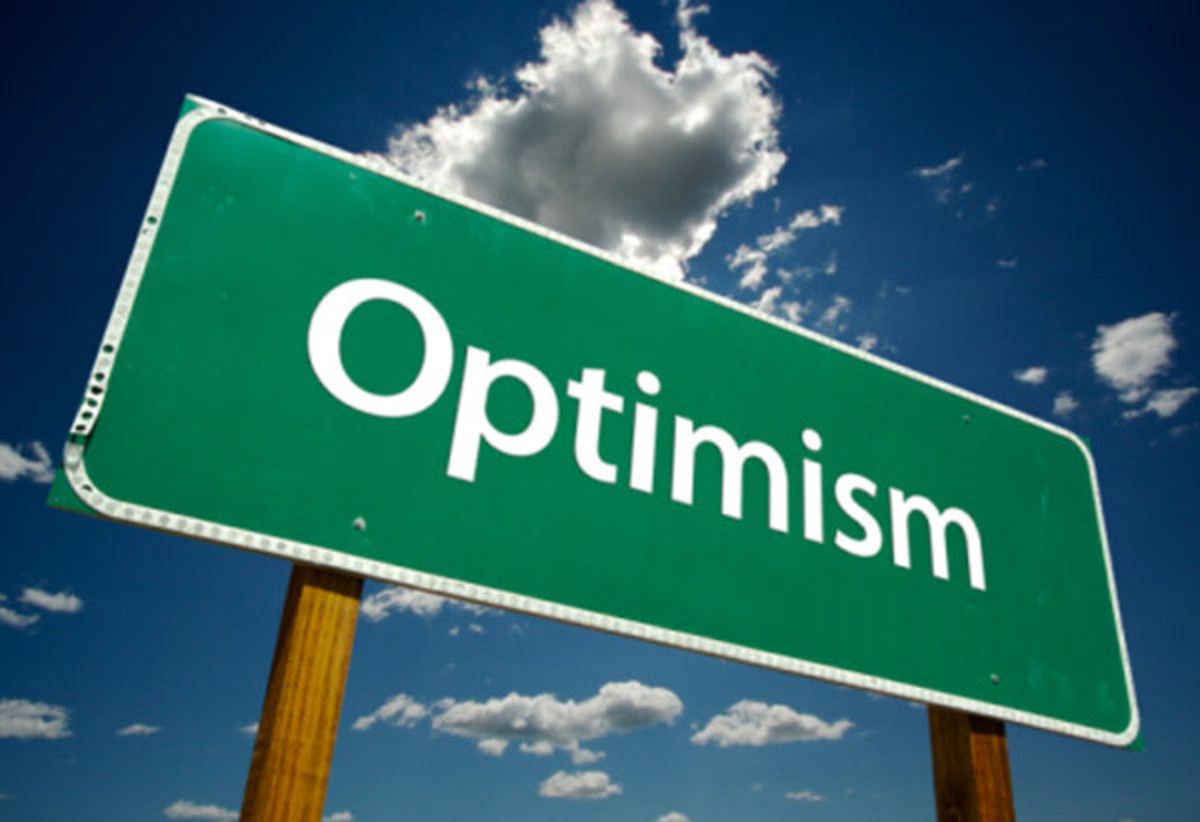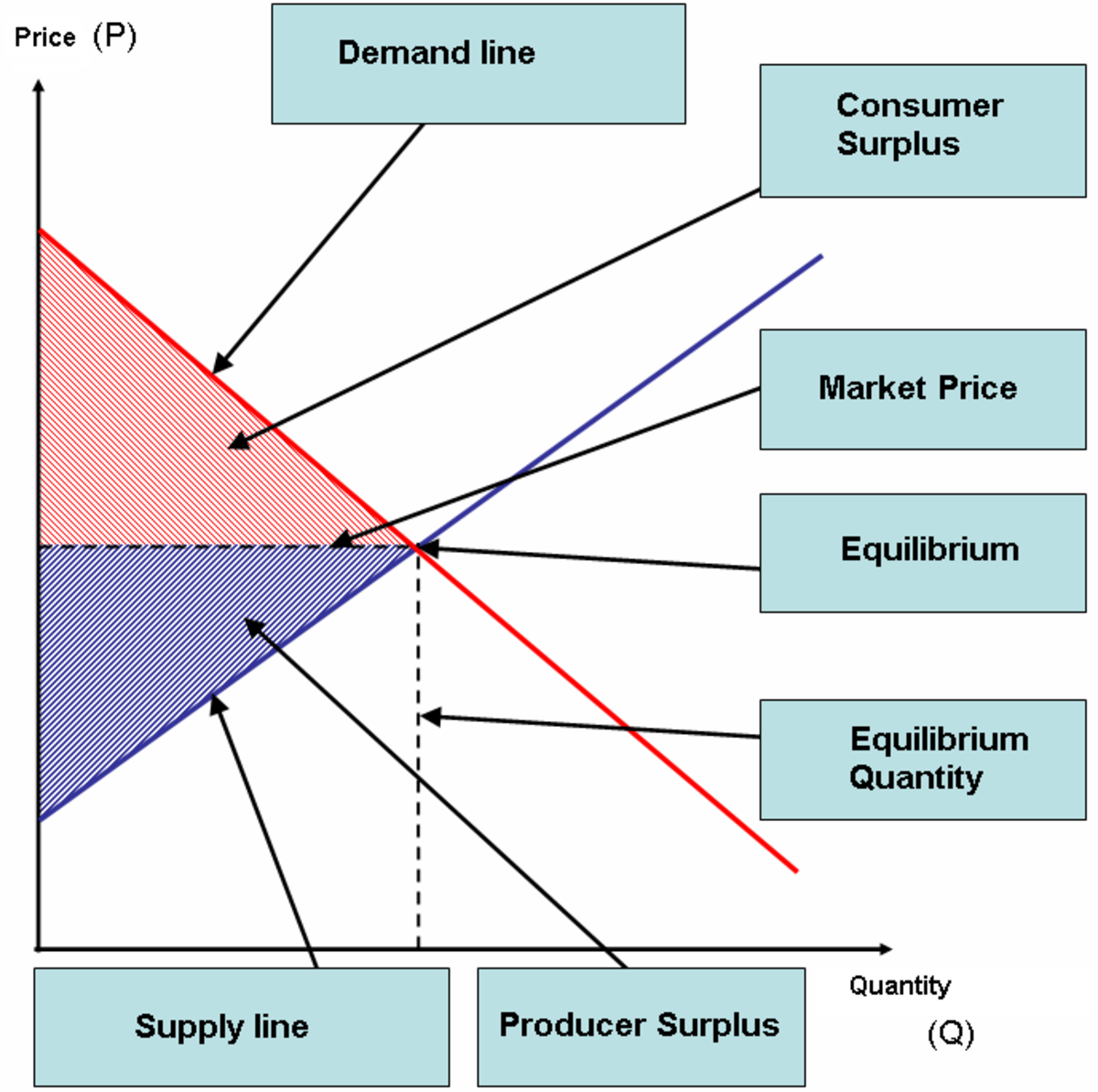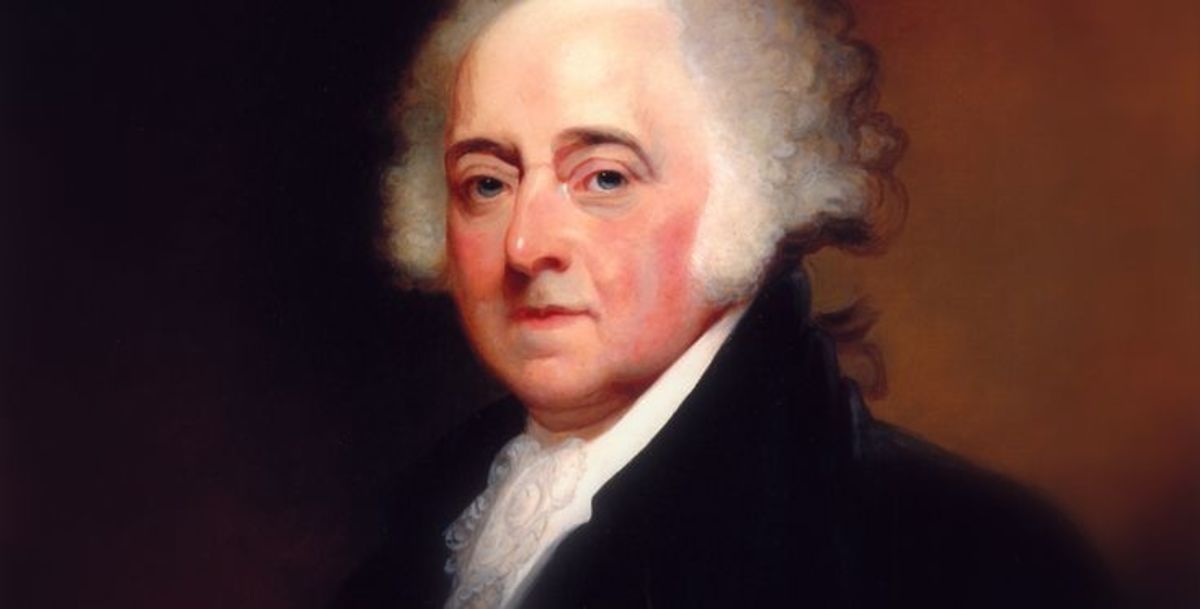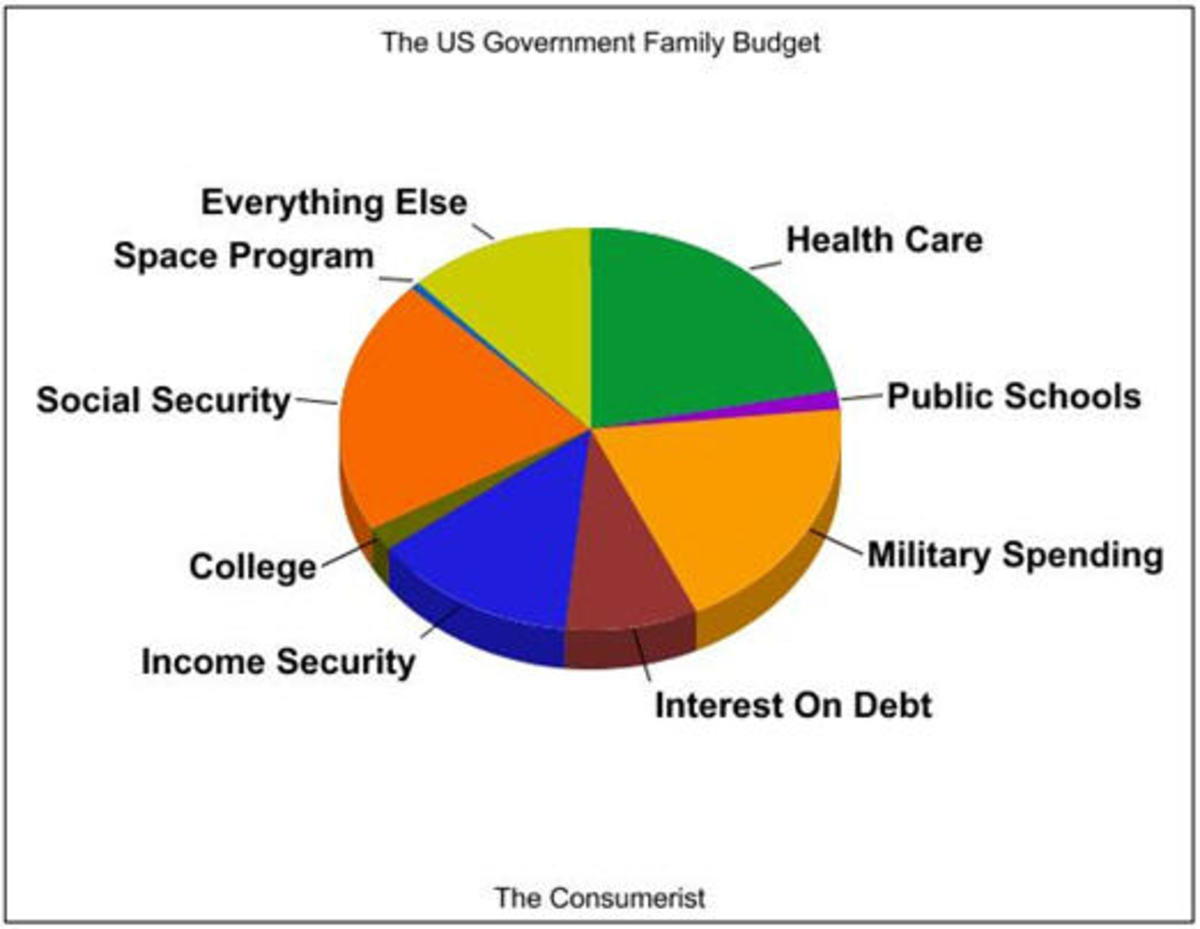Economics 101 For the Political Junkie: Part 1 - Schools of Economic Thought [183a]
ADAM SMITH - CLASSICAL ECONOMICS

WHY SHOULD YOU CARE ABOUT SCHOOLS OF ECONOMIC THOUGHT?
Hundreds of hubs, including several of mine, and millions of words have been written or spoken arguing for one side or another of the question regarding which economic system is best for America. I have my preference and you have yours, but, why do you have yours? Do you really know, when you sit down to think about it or if some one asks you to explain, your rationale for selecting that system? Do you know and understand the theory behind it and its history, if it has one?
In today's world, the answer is fundamental because one system argues for governmental involvement in economic affairs and the other argues just as strongly that governmental intervention just makes things worse. How do you know if it does or not? What can you point to that will support your position or weaken your opponents?
What started me on this series of hubs is a car trip from Florida to Arkansas and back, actually a couple of them. To help pass the time on these 1600 mile trips, I bring along lectures from The Great Courses series and it took a couple of these trips to get through Economics, 3rd Edition by Professor Timothy Taylor and 28 hours of information. It is an overview course that develops the ideas behind micro and macroeconomics, how they work and don't work together, and the issues about them. To say the least, it added greatly to my knowledge base, solidified things I already knew or suspected, changed my mind about a few other ideas, and got me thinking about economics in general and the critical importance for average Americans to have a basic understanding of this arcane and often opaque subject.
That last phrase is true and a shame. Economics should be neither arcane nor opaque. I assert that to an inquisitive mind, which any political junkie who his worth his or her salt ought to be, economics can be a vibrant, interesting, and entertaining area inquiry. This is true whether you are intrigued by or even understand the the mathematical relationships behind economics or if you are one of those where math is a mystery for all you have to have the ability to do is picture the ebb and flow of money moving around the world on the one hand, or the battle between supply and demand on another; very little math required. Personally, I am more of the ebb-and-flow kind of guy with some mathematical ability.
OK, enough with the philosophy.There is a wide chasm in the understanding of economics between mainstream economists, regardless of political persuasion, and the the average American/political junkie who listens to Fox News or MSNBC. Would I be too far wrong in asserting that the latter understand economics in terms of political implications rather than economic ones? For example, those on the Right believe strongly in laissez-faire, e.g. government getting out of the way of business because it stands in the way of America's (the Right's) idea of liberty, while an economists view is that an unfettered free-market always produces better results than the alternative. Or, is it better to let recessions and depressions run their course rather than interfere with the market mechanisms because it always brings supply and demand into equilibrium? Again this political view because it ignores several important parts of the economic equilibrium equations regarding near and mid-term turbulence.
So, why should you care? Because the quality of your life depends on it! Based on which kind of economic system you choose to live under, based on who you vote into Congress and the Presidency, the quality of your life can change drastically over time. America now has 200+ years of history living under one or the other to determine which system provides what results and how each impacts our perception of liberty and the relationship between government, business, and the People.
No, I am not being overly melodramatic with the last paragraph. All of those things change significantly under the policy decisions, both monetary (Federal Reserve) fiscal (Congress), made to conform with the economic theory currently in vogue. In the political drama since the 1980s as well as the violent change from the relatively mild recessions in the 50 years since 1950 to the near depression of 2008, gives you just a taste of those differences.
JOHN MAYNARD KEYNES - KEYNESIAN ECONOMICS

WHAT ARE THE SCHOOLS OF ECONOMIC THOUGHT?
FOR THIS INTRODUCTORY HUB, I am going to start considering this question from the vantage of roughly 1920; that is because it is very easy to answer, there really is only one - what is now termed Neo-Classical. For a more complete history please see this Wikipedia link on Economic Schools of Thought.
But just for continuity, let me offer that one of the first known economic system, one which many say Classical Economics is based, is Chanakya economics from around 300 BC; Chanakya was an Indian teacher, philosopher and royal advisor. Other ancient schools were Xenophon, Aristotle, Qin Shi Huang, and Wang Anshi. The beginning of the 8th century BCE saw the development of the Islamic Economic School. This early economic philosophy led to such familiar ideas as trading companies, big businesses, contracts, bills of exchange, long-distance international trade, the first forms of partnership (mufawada) such as limited partnerships (mudaraba), and the earliest forms of credit, debt, profit, loss, capital (al-mal), capital accumulation (nama al-mal), circulating capital, capital expenditure, revenue, cheques, promissory notes,trusts (see Waqf), start-up companies, savings accounts, transactional accounts, pawning, loaning, exchange rates, bankers, money changers, ledgers, deposits, assignments, the double-entry bookkeeping system,lawsuits, and agency institution. A surprising list, isn't it? (thank you Wikipedia)
Classical economics, the one with which most of us are familiar, resulted from the works of great thinkers like Adam Smith (1776), Jean-Baptiste Say (Says Law, 1803), Thomas Malthus (1800), David Ricardo (1817), and John Stuart Mill (1848). After a fashion, classical economics morphed into neo-classical economics as more information became available and analysis was accomplished which tried to explain why the economy worked the way it did.
Neo-classical economics, the kind of economics practiced in the United States for much of the latter half of the 1800s up to the Great Depression in 1929, grew out of the ideas of classical economics but with one fundamental difference; whereas classical economics believes the value of goods is based on the "cost of production", neo-classical economists dropped that idea and asserted the value of goods is based on the "perceived" value of the purchaser. Both classical and neo-classical economics are concerned primarily with what is happening at the "tree" level of economics, understanding economic behaviour in terms of effects on supply and demand by individuals and firms, rather than the aggregation of a societies supply and demand requirements.
Keynesian economics, after John Maynard Keynes, grew out of the need to explain why the neo-classical system failed under economic stress; in 112 years prior to the release of his book, " The General Theory of Employment, Interest and Money" (1936), there had been an average of a major financially-based recession every 5 to 6 years! With it came the theory of macroeconomics, the "forest"-level view, as it were. Keynes does not dispute the fundamentals of microeconomics, the backbone of the classical and neo-classical systems; he simply asserts that there is more to the story, which microeconomics overlooks, that will explain why the classical and neo-classical theory fails in such a dramatic fashion each time the economy becomes overly stressed and why the economy collapses with such regularity and high frequency.
His answer was simple. While adherents to neo-classical economics believe strongly to the "if you build it, they will come" theory, meaning supply drives demand and aggregate demand will quickly catch up with aggregate supply in both the short-run and the long-run. Keynes argue that this is not true in the short-run. His theory holds that 1) demand drives supply and 2) in the short-run, different factors drive supply and demand decisions which lead to disequilibrium between aggregate supply and aggregate demand. Keynes agrees that in the long-run (decades) supply and demand will come back into equilibrium. It is the devastation over the short-run (years) in human terms which drives Keynes to suggest government use its monetary and fiscal levers to interrupt the destructive power of positive feedback which is the bane of a pure microeconomics-based economic theory.
Neo-classical Synthesis - It quickly became evident to virtually all economists that at least some aspects of Keynes' theory of macroeconomics was correct and had to be accounted for. It was apparent that the "forest-level" view was relevant after all, so neo-classical and Keynesian economics were merged; no one doubted anymore what most of what Keynes had theorized was true. That didn't mean, however, that all economists agreed on the solutions; they ended up being divided as ever
"Freshwater" Economic Schools - As the name implies, these are centers of economic thought situated around the large bodies of fresh water in the United States, e.g., the universities like Carnegie Mellon, University of Chicago, and the University of Minnesota. These economists hold with the neo-classical side of the synthesis, still maintaining that supply drives demand and that when things go terribly wrong, government has no role in mitigating its course.
"Saltwater" Economic Schools - Again, you can guess where these universities are located and they include such esteemed campuses as Berkley, MIT, Columbia, and Harvard. Of course these economists hold that 1) demand drives supply, 2) the government should sometimes intervene to shorten the course of serious economic instability, and 3) government has a role to play in keeping the economy stable by reacting sooner rather than later to economic perturbations that seem to be getting out of control.
MOVING FORWARD
I WILL LEAVE IT AT THAT for this segment for I have reached a natural stopping point. From this point forward, my baseline will be the ideas of the "fresh" and "salt"water schools of economic thought as they are the ones which shape our lives today.
DEMOGRAPHIC SURVEY # 1
Do you find yourself agreeing
DEMOGRAPHIC SURVEY # 2
Are you
RELATED LINKS
- Economics 101 For the Political Junkie: Part 2 - Mic...
Second in a series on Economics for the Political Junkie. This hub considers the history behind and the basic principles of Microeconomics. - Evan's Easy Economics: #1 Scarcity and Prices
This article will be the beginning of a series of articles I publish about Free-Market Economics. If you've been reading news articles, or watching the news and had no idea what the heck the economists were talking about, then maybe this series of... - BASIC CONCEPT OF ECONOMICS
The basic concept or elements of economics are: wants, scale of preference, choice, and opportunity cost. 1. Wants Want may be defined as an insatiable desire or need by human beings to own goods or services that give satisfaction. The basic... - Comparing 12 Quarters Of President Obama With His Pr...
President Obama now has 13 quarters of office under his belt and the rhetoric on how he has done is abysmal, if you listen to the conservatives. What is the true story. well, let's see. - The American Dream: Criteria and Government Role [10...
The phrase - The American Dream: Conservative View I: Tax Policy ...
The GINI Index is a good measure of economic inequality in society. It is used with other measures to determine if the Conservative version of the American Dream worked after over 100 years of trying. - A Short History of American Panics, Recessions, Depr...
This is Part II of my A Short History of American Panics, Recessions, Depressions: Why Conservative Economics Can't Work hub. Part I finally got too long. - A Short History of American Panics, Recessions, Depr...
The debate as to whether Conservative or Progressive economic theory was better for the country. The best way to measure that, I think, is to look at the history of Panics, Recessions, and Depressions in America since its foundings and compare that w

